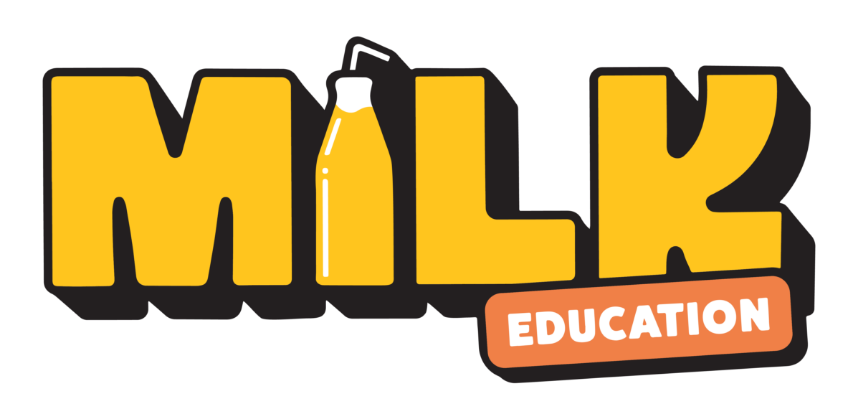If you’re thinking of starting a career in education, then we think you’re making one of the best choices for yourself and for future generations! As a part of Milk’s Graduate Scheme, you can gain classroom experience and give yourself the best possible head start to your teaching career.
However, beginning a teacher training course with ZERO teaching experience can be a big risk, and make the course feel more overwhelming and stressful than it needs to be.
Whilst prior teaching experience isn’t always a requirement for teacher training courses anymore, it adds so much value to your application, and will also give you a huge head start when you begin your official training.
As Milk’s Education Insider, I’ve outlined some of the best ways that you can gain experience before starting your teacher training course, to help you feel more equipped to handle any challenges that might come your way during what is often an intense year!
1. Volunteer
The most tried-and-true way to gain teaching experience is through volunteering.
Volunteering in a school for 4-6 weeks is an excellent way to learn about the daily routines of teachers, teaching assistants and support staff, as well as giving you a chance to work with students and observe different teaching styles.
Whilst you can use this experience on your application, volunteering, however, is unpaid work and often only for short periods of time, which is something to be aware of.
You can also volunteer in other ways, such as local charity events or workshops for young people. For example, if you’re interested in sports or drama, look at local events happening in your area and offer to help where you can.
2. Milk’s Graduate Scheme
As an upgrade from short-term volunteering experience, Milk’s Graduate Scheme provides you with paid, long-term opportunities to support a local school and gain a close insight into all aspects of teaching.
Whilst working in the school, you’ll be able to observe experienced teachers and learn all about different behaviour management techniques and pedagogical approaches. You’ll have the chance to support students one-to-one or in small groups, helping them to catch-up on work and close any gaps in learning.
What are the benefits of joining Milk’s Graduate Scheme?
- Paid Classroom Experience. A long-term placement in a school near you, allowing you to support class teachers and help students on a one-to-one or whole class basis.
- High-quality CPD opportunities. You’ll have access to our Milk Academy CPD resources, along with opportunities to observe lessons and participate in on-site CPD sessions in school.
- FREE PSHE Lesson Plans. Modern lesson plans and resources focused on sensitive topics, such as anti-racism, vaping and disability awareness.
- Charity Ambassador Training. Become one of our Make Life Kind Charity Ambassadors to inspire and educate the next generation, by promoting important social messages in schools.
- Ongoing Support. Our empathetic Milk consultants will provide you with personalised guidance to help you navigate your career path with confidence, giving you regular advice to help you prepare for your teacher training course.
You’ll need at least a 2:2 undergraduate degree, and an enthusiastic passion to teach! Register for our Graduate Scheme today to unlock your potential.
3. Childminding
Looking after children is an insightful way to learn all about how to best communicate ideas, how to simplify tasks, and different approaches to behaviour management.
Whether you look after your neighbour’s children, your younger siblings, or nieces and nephews, childminding can help you to better understand children. It will also give you an idea of their interests and what kinds of things young people enjoy doing, meaning you can create relevant and engaging lesson plans in the future.
All this experience is relevant to teacher training and can help to boost your application.
If you want to look after other people’s children, you will need to pass a DBS Criminal Record Check and complete a Health Declaration Form.
4. Online Tutoring and In-Person Tutoring
Tutoring is a great route into teaching, and gives you experience of working one-on-one with students.
Tutoring pay varies depending on your chosen rate or the company that you work through if you are online tutoring. It is often flexible work, dependent on your availability and exam dates, and typically tutoring hours are after-school in the evening or on weekends.
There are different options for tutoring, depending on your qualifications.
- Subject specific tutoring. Families will often hire tutors to help their child with specific areas, such as Maths or English. If you have an undergraduate degree in a school subject, you can advertise your services to help tutor students from Primary to Sixth Form level.
- Online tutoring. Online tutoring is similar to in-person tutoring, but you may work for an online company instead of advertising your services yourself. Online tutoring can be for any age group, and will give you experience of interacting with young people and planning materials and resources for lessons.
- Extracurricular tutoring. Many families encourage their children to have an extracurricular pursuit separate from school, such as music lessons, cooking, chess, or developing technology skills such as coding.
5. Teaching Abroad with a TEFL or TESOL Qualification
If you’re unsure about what path to take after university and you’re interested in travelling to new places, teaching English as a second language can be an exciting option.
Most countries will require you to have an undergraduate degree and a Teaching English as a Foreign Language (TEFL) or Teaching English to Speakers of Other Languages (TESOL) qualification, with a certain number of hours completed. You can complete this qualification online or, in some cases, in-person in your chosen country. Check the requirements carefully before applying to jobs abroad.
Teaching abroad allows you to plan lessons and teach students in a fun and interactive way, helping to prepare you for life as a teacher in the U.K. However, moving abroad is a big life change and requires a lot of preparation, so make sure to research your options in detail and consider the options available to you before making this decision.
6. Youth Clubs
Offering your support at a local youth club not only gives you experience with young people, but can also provide you with useful transferrable skills, such as time management, social skills, and organisation.
Examples of youth clubs to help out with:
- Scouts or Girlguiding
- Outdoor Education Clubs
- Local youth centres
- Sports teams
- Drama club
7. Become a Mentor
Mentors offer personal support, encouragement and inspiration to young people who have been through difficulty in their life or come from a disadvantaged background. This an extremely rewarding way to better understand young people and the issues they are currently facing in society, as well as different barriers to learning.
The Prince’s Trust offers advice for becoming a mentor for a young person, including the importance of goal setting and how the mentoring relationship works.
8. Upskill with Professional Development Courses
With no prior teaching experience, you may not fully understand the process of teaching and what goes into each lesson. This is where professional development courses come in!
Upskilling with different courses helps to open doors to the next stage in your teaching career, and accredited courses will look great on your teacher training application.
When you register for Milk’s Graduate Scheme, we’ll give you exclusive access to FREE CPD courses to help you prepare for the classroom, through Milk Academy. You’ll also have access to a discounted rate on other Milk Academy courses, too.
Our in-depth courses cover a range of important skills that you’ll need for teaching, such as:
- Lesson Planning
- SEND Training
- Bullying Awareness & Prevention
- Teaching Phonics
- And more!
You can also find courses online to develop technical skills to help you better utilise technology in the classroom. LinkedIn Learning and Hubspot offer a range of free or discounted courses for members.
The university where you completed your degree may also offer additional training and upskilling courses.
9. Networking and Industry Events
Your university may also offer networking and industry events related to education, which may be open to graduates in any subject.
Get into Teaching also provides webinars and online events related to teaching and teacher training.
If you have friends or family members who work in a school, ask them about their experiences. They may be able to offer you advice about getting into teaching or provide you with contact details for people to talk to in the industry.
10. Research on Social Media
Many teachers share their experiences of teaching on social media. Take a look at hashtags such as ‘teachertok’ to gain real-life insight into topics such as classroom displays, teaching resources, lesson planning and behaviour management.
There’s a lot of useful advice out there (and some funny content, too), and I always found these kinds of videos to be reassuring when I worked in a school. Teaching isn’t an easy profession, and hearing stories from other educators is a great reminder that everyone has challenging moments in school. This content can help you to see the full picture of teaching and give you ideas for your classroom and lessons in the future.
No Experience? No Problem.
If you have no experience in teaching, do not worry – not everyone follows the same path into teaching.
Enthusiasm and passion for teaching can get you far, and adding experience through our Graduate Scheme and the other tips outlined in this blog will make for a strong teacher training application that’ll be hard to ignore!
Register your interest for our Graduate Scheme and begin your teaching journey with Milk to gain invaluable classroom experience over a long-term placement!

